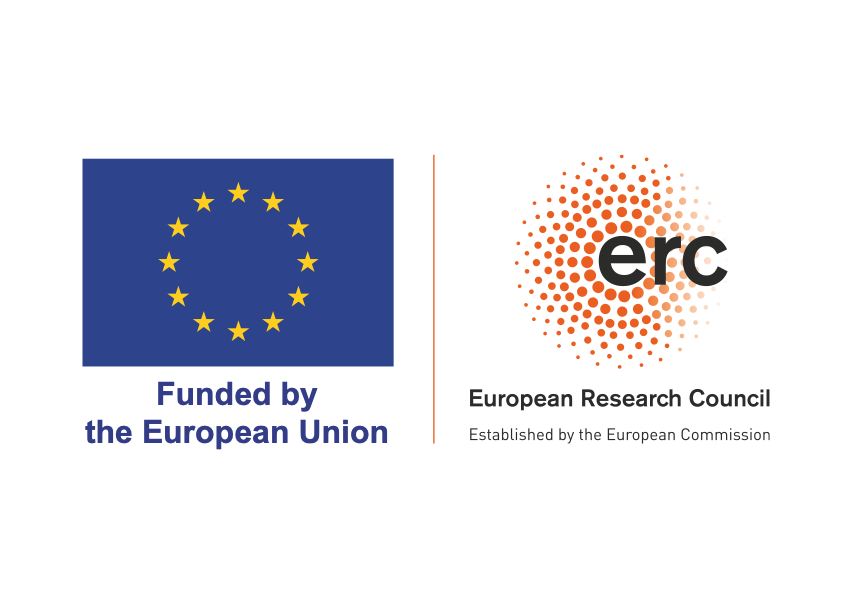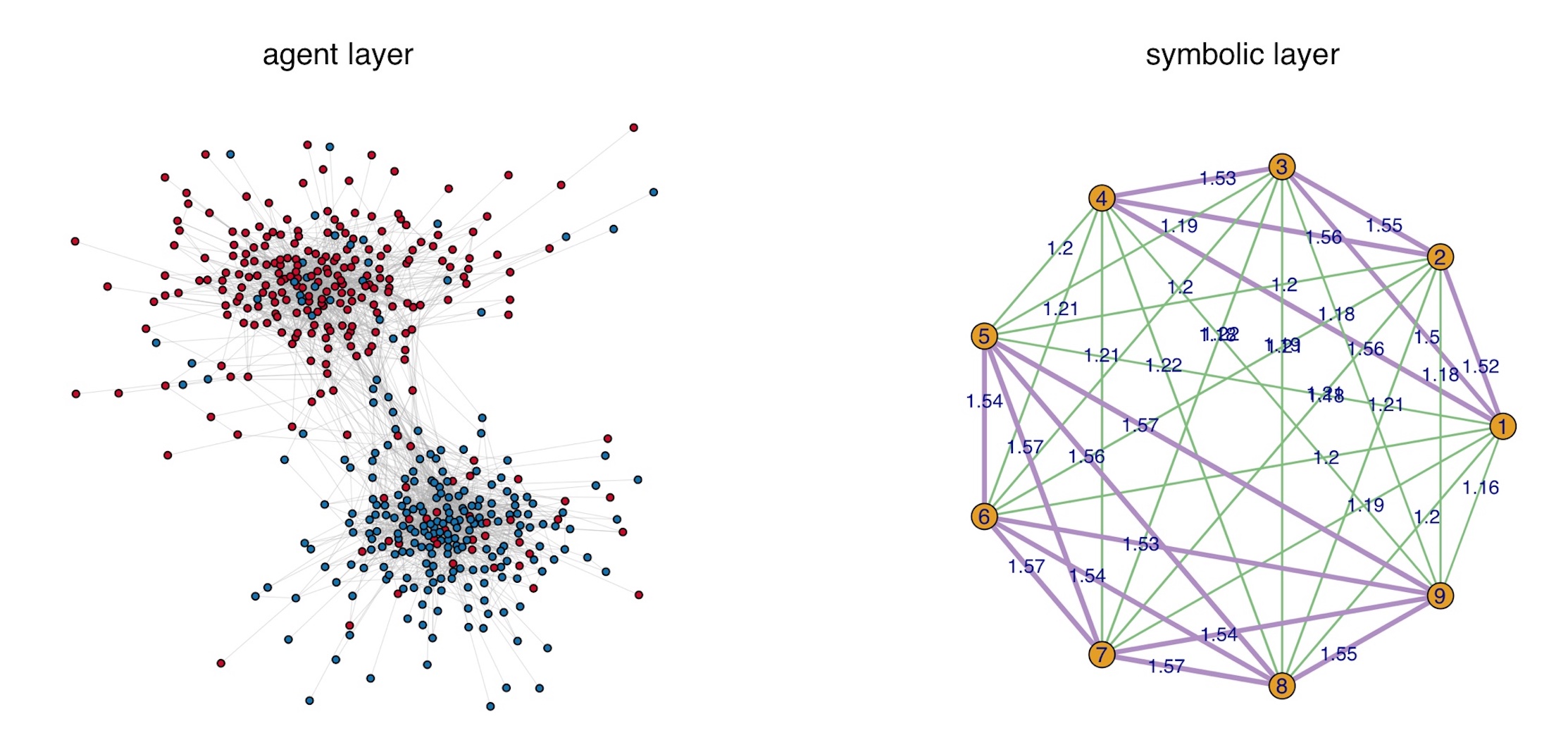Network Representations of Attitudes.
surveygraph
 | Development of surveygraph software and training materials was initially funded by the European Union under the ERC Proof-of-concept programme (ERC, Attitude-Maps-4-All, project number: 101069264). Views and opinions expressed are however those of the author(s) only and do not necessarily reflect those of the European Union or the European Research Council Executive Agency. Neither the European Union nor the granting authority can be held responsible for them. |
Overview
surveygraph is a lightweight library used to produce network representations of attitudes, as they emerge in tabular sociological data such as surveys.
We assume tabular data with rows representing agents, such as individuals, and columns representing items, such as survey questions. Table entries represent responses by agents to items. By computing the similarity between each pair of rows and each pair of columns we obtain, respectively,
- the agent network, where nodes represent agents, with weighted edges drawn between similar agents
- the symbolic network, where nodes represent items, with weighted edges drawn between similar items
By plotting these networks with tools such as igraph, we obtain accessible and visually striking representations of structure within the survey data.
Installation
Still in the development stage, the surveygraph package is not yet available on CRAN, but can be installed from GitHub via the devtools package as follows.
library("devtools")
devtools::install_github("surveygraph/surveygraphr")
The package can then be loaded in an R session as follows.
library("surveygraph")
Usage
Generate a synthetic survey dataset
S <- make_synthetic_data(500, 9, polarisation=0.2)
Compute a network representation of the survey respondents, retaining edges if the corresponding pair of respondents are sufficiently similar
e <- make_projection(S, layer="agent")
Gallery
Getting help
Please contact [email protected] for support, and report bugs with a minimal illustrative example on GitHub. Since the package is in its infancy, we welcome feature requests and general feedback.
